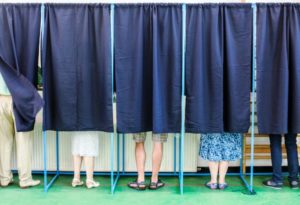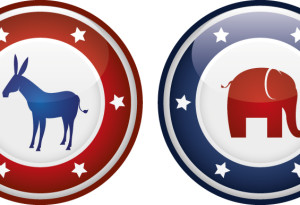Posts Tagged: Asian
Analysis
ANALYSIS – Asians and Latinos in California are the two fastest growing Ethnic populations on the voter file. But they appear, politically, to be headed in slightly different directions.
News
Monika Lee’s story showcases many of the possible avenues for creating meaningful change in Sacramento. In her five years in the community, Lee has moved up the ranks in three different organizations and worked with a variety of issue areas, letting her passion for equity guide her along the way.
News
The U.S. Census Bureau’s voter survey of the November 2020 election shows that, once again, California saw increased participation in general and across nearly all demographics. A startling finding in the recently released data: In 2020, African American participation hit 64%, very close to 2008’s record 65.2%, when Barack Obama ran for president for the first time.
Podcast
The Capitol Weekly Podcast welcomes Maeley Tom, a longtime legislative staffer and Democratic Party stalwart who played a pioneering role as one of the first Asian women in California’s capitol. Tom’s new memoir, “I’m Not Who You Think I Am,” has just been published.
News
A report from the Public Policy Institute of California on the makeup of the California electorate as the 2020 elections approach. Eight in ten eligible voters are registered to vote; independent registration continues to increase. As of February 2019, 19.9 million of California’s 25.3 million eligible adults were registered to vote. At 79.1% of eligible adults, this is an increase from the registration rate in 2015 (72.7%), the last year preceding a presidential election.
News
Part 3: As California grows, the shifts of population within the state can have a dramatic impact on the drawing of future political boundaries. These shifts can be broken into two different types of population counts: The absolute population counts as defined by the 2020 U.S. Census, and the citizen voting age populations, or CVAP.
News
We are just getting used to the current districts, but once again redistricting is about to rear its decennial head. To provide a preview of what is to come in California, we have created an interactive map of the state’s congressional districts using current census projections and voter registration data. This tool allows you better understand the mid-decade projections and project to what could be the factors in the 2021 redistricting.
News
Immediately after the 2016 there were a number of people and organizations that made quick analyses of the electorate, and what happened. Here in California, we appeared to be bucking a national trend: While the Republican ticket over performed in key swing states on the East Coast and upper mid-west, California saw Democrats regain legislative super-majorities in both houses, hold swing congressional seats and make Republicans appear more vulnerable than they have in many years.
Analysis
With the release of official voter registration numbers this week, the focus has been on the continued decline in Republican registration and growth in Independent voters. The stories, for the most part, treat these two factors as directly related, like two ends of a see-saw. As Republicans lose ground, independents grow and common wisdom within California’s political class jumps to the causal link. However, looking closer at the data, there are two significant factors that should temper this quick rush to judgement.
News
To political experts up and down California, California’s new Motor Voter law is a question mark that likely will involve rethinking some practices and require a great deal of new effort. To Democrats, it’s the long-overdue removal of a barricade to full participation in California’s civic life. To Republicans, it poses a danger that a flood of illegal immigrants will start participating in political decision-making.










